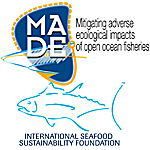Credit systems are used in a range of environmental and resource management settings, including carbon, water and biodiversity, for achieving specified sustainability goals. Proposals to apply a credit system to fisheries management have been made. But these generally do not provide a well-defined framework for the potential of a fisheries credit system and in what way such a system would differ from other related management arrangements as individual transferable fishing quotas (ITQs/IFQs) or transferable vessel days. However, examples of credit systems applied to fisheries do exist: the Scottish Conservation Credit Scheme (SCCS), the Agreement on the International Dolphin Conservation Program (AIDCP), fish banking credits, and the case of California Drift Gillnet Fishery Pacific Sea Turtles Tax. This paper analyses these cases and explores to what extent a credit system differs from other fisheries management arrangements. In doing so we define what a fisheries credit system is, identify what incentives, mechanisms, elements and measures are needed to make a credit system effectively function, and discuss what a credit system could add to prevailing fisheries management tools.
- Presentation

 PDF version
PDF version
